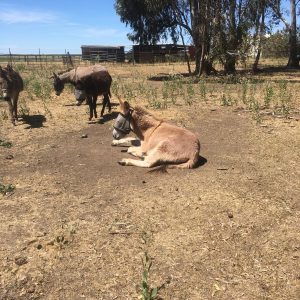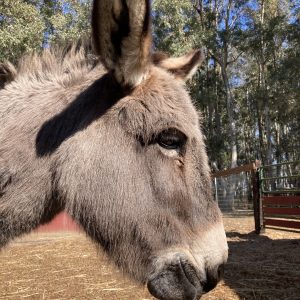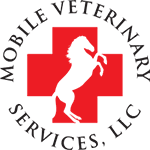Possibly the most significant threat to the health and longevity of donkeys in the US is obesity. We love our long-eared friends and sometimes we dote on them too much with delicious, high-quality treats that donkeys are not equipped to metabolize.
My donkey’s fat? But he barely eats anything!
Donkeys are adapted to live in semi-arid environments, like the deserts of Nevada and Arizona. Because of this, their metabolism is significantly different than that of horses – think of them as the world’s easiest keepers. Donkeys are incredibly efficient at digesting tough fibrous plants and have a much lower energy requirement than horses. To put it in perspective, ponies and horses need 2-2.5% of their body weight in dry matter daily, whereas donkeys only need 1.3-1.8%.

The high fiber, low energy diet that donkeys have evolved to eat can be mimicked by feeding mainly straw (wheat, oat, or barley) along with a forage balancer to avoid micronutrient deficiencies. As an aside, you want to stay away from rice straw – for some reason it is the one type of forage that donkeys seem to have absolutely no interest in eating. If the only option is hay, it is recommended to soak the hay for at least an hour before feeding to your donkeys to remove most of the simple sugars.
So my donkey’s fat – what’s the big deal?
Adipose tissue – or fat – is not just a cosmetic issue. It is a very active tissue that produces inflammatory molecules that circulate throughout the bloodstream and can propagate multiple disease states, including metabolic syndrome and laminitis. Another life-threatening sequela of obesity is the increased risk of developing fatty liver. Fatty liver occurs when an obese animal goes through a period of anorexia – this could be a simple as a bout of gas colic that results in your donkey not eating his whole breakfast. When the body doesn’t get its normal amount of energy through food, it rapidly mobilizes and breaks down adipose tissue to use for energy instead. The resulting fat molecules (triglycerides) get filtered through the liver and overwhelm it, resulting in a liver that is clogged with fat. This can lead to liver failure, as well as damage to and failure of other organ systems. Donkeys are especially predisposed to this process, which is a major reason why we always recommend a call to your veterinarian for any donkey that goes off food, even if they don’t seem to be in overt distress.

Okay I’m convinced, my donkey’s fat – now what?
As discussed above, sudden reductions in feed intake can lead to life-threatening disease, so having a conversation with your veterinarian about safely putting your donkey on a diet is paramount. It may even be necessary to test the levels of triglycerides in the blood as a monitoring tool while your donkey loses weight. As with all our equine friends, a slow systematic approach to dietary change is the best way to reduce risk.





